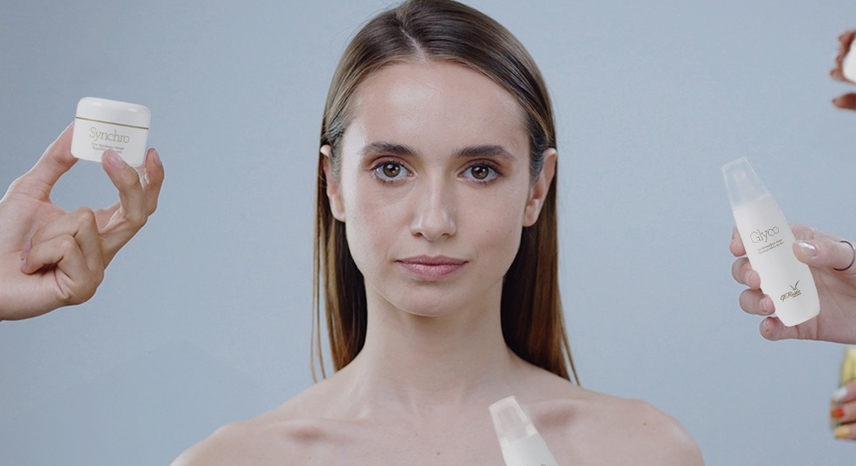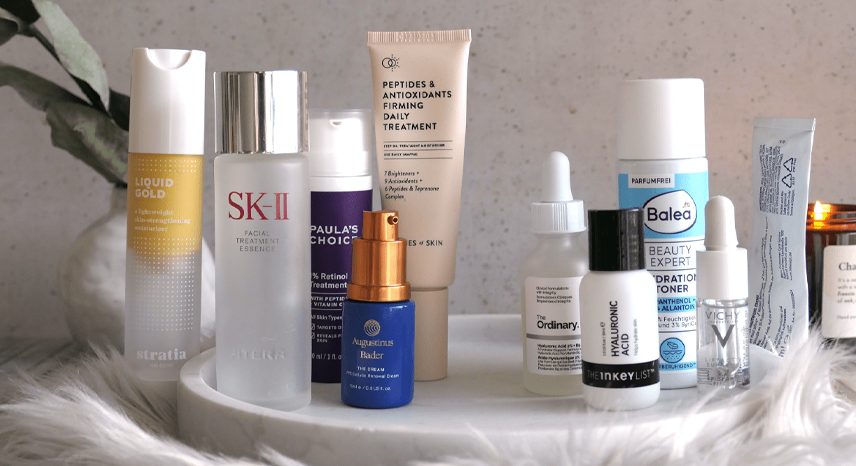The Role of Probiotics in Beauty: Balancing Your Skin and Gut Health

Introduction
In recent years, the concept of beauty has expanded to include more than just external appearance. An increasing body of evidence points to the intricate connection between gut health and skin health, suggesting that a balanced gut microbiome plays a crucial role in achieving a radiant complexion. This fascinating link, often referred to as the gut-skin axis, has spurred a growing interest in probiotics—live beneficial bacteria that, when consumed in adequate amounts, help maintain a healthy balance in your digestive system. By fostering a robust gut microbiome, probiotics can reduce inflammation, support skin repair, and promote overall well-being. In this blog, we’ll delve into the science behind the gut-skin connection, explore natural sources and supplements of probiotics, and offer practical lifestyle tips to help you integrate these powerful nutrients into your daily routine for long-term beauty and health
Understanding the Gut-Skin Connection
Your gut is often described as the body’s “second brain” due to its complex interactions with the nervous and immune systems. The gut-skin axis is a bidirectional communication network where the state of your gut influences the health and appearance of your skin, and vice versa. When your gut microbiome—the diverse community of bacteria residing in your digestive tract—is out of balance, it can lead to systemic inflammation. This inflammation is not confined to the gut; it manifests throughout the body, including the skin, resulting in issues such as acne, eczema, and premature aging.
Moreover, an imbalanced gut can compromise the skin's barrier function, leading to increased sensitivity and dehydration. On the flip side, a well-balanced microbiome contributes to better nutrient absorption and a more efficient immune response, both of which are essential for maintaining healthy, glowing skin. By nurturing your gut health, you create an internal environment that supports cellular repair, reduces inflammatory responses, and enhances overall skin resilience.
Scientific Connection: Probiotics and Skin Health
Research into the gut-skin axis has revealed that probiotics play a key role in modulating inflammation and promoting skin repair. The beneficial bacteria found in probiotics help maintain a balanced gut environment, which in turn regulates the production of inflammatory cytokines. This reduction in inflammation can lead to improvements in various skin conditions, such as acne, rosacea, and psoriasis.
Studies have also indicated that probiotics may enhance the skin’s natural barrier function, reducing transepidermal water loss and improving hydration levels. By stimulating the production of short-chain fatty acids during fermentation, probiotics support the integrity of the skin barrier, ensuring that it remains robust and effective against environmental stressors.
Furthermore, the immune system is closely linked to both gut and skin health. A balanced gut microbiome ensures that the immune system responds appropriately, reducing the likelihood of allergic reactions and autoimmune responses that can damage the skin. In essence, probiotics help orchestrate a harmonious balance between the immune system and skin cells, leading to a healthier, more vibrant complexion.
Probiotic Foods: Nourishing Your Gut Naturally
One of the most effective ways to boost your probiotic intake is through your diet. Probiotic-rich foods not only introduce beneficial bacteria into your gut but also provide essential nutrients that support overall health. Here are some of the top natural sources of probiotics:
Yogurt
Yogurt is one of the most well-known and accessible sources of probiotics. Look for varieties that contain live and active cultures, as these are the beneficial bacteria that can aid in digestion and improve gut health. A serving of yogurt can help balance the gut microbiome, which, in turn, contributes to clearer skin and better nutrient absorption.
Kefir
Kefir is a fermented milk drink that is even richer in probiotics than yogurt. Its unique combination of yeast and bacteria makes it a potent source of digestive support. Drinking kefir regularly can help maintain a healthy gut flora, reducing inflammation and supporting skin repair.
Sauerkraut and Kimchi
These fermented vegetables are not only delicious but also packed with probiotics. Sauerkraut, made from fermented cabbage, and kimchi, a spicy Korean side dish, are excellent sources of beneficial bacteria. They also contain vitamins and antioxidants that can boost your overall immune function and contribute to healthier skin.
Kombucha
Kombucha is a fermented tea that has gained popularity for its detoxifying properties. Rich in probiotics and organic acids, kombucha supports gut health and helps regulate digestion. Including kombucha in your diet can enhance your body's natural detoxification processes, leading to improved skin clarity.
Miso
Miso is a traditional Japanese seasoning made from fermented soybeans. It is not only a flavorful addition to soups and marinades but also a potent source of probiotics. Regular consumption of miso can help balance the gut microbiome and provide a rich supply of vitamins and minerals that support overall health.
Supplement Guidance: Enhancing Your Probiotic Intake
While incorporating probiotic-rich foods into your diet is the best way to support gut health, there are instances when supplements may be beneficial—especially if your diet is lacking or you have specific digestive issues. Here are some guidelines for choosing high-quality probiotic supplements:
- Strain Diversity: Look for supplements that contain multiple strains of beneficial bacteria. Different strains offer varied benefits, so a diverse formulation can provide comprehensive support.
- CFU Count: CFU stands for colony-forming units, which indicates the number of viable bacteria in a supplement. A higher CFU count isn’t always better; it’s important to choose a product that offers a balanced and effective dosage.
- Targeted Formulations: Some supplements are formulated specifically for skin health, containing strains that have been shown to reduce inflammation and support collagen production. Consider these targeted options if you have specific skincare concerns.
- Quality Assurance: Opt for supplements from reputable brands that use rigorous testing methods to ensure purity, potency, and safety. Check for certifications or third-party testing where possible.
- Consult a Professional: If you have any underlying health conditions or are new to probiotic supplements, consult with a healthcare professional to determine the right product and dosage for your needs.
Lifestyle Integration: Making Probiotics a Daily Habit
Nurturing your gut health is a daily commitment that extends beyond just consuming probiotic-rich foods or supplements. Here are some practical tips for integrating probiotics into your lifestyle for long-term benefits:
1. Incorporate Probiotic Foods into Every Meal:
Aim to include at least one serving of a probiotic-rich food each day. For example, start your morning with a serving of yogurt, add a side of sauerkraut or kimchi to your lunch, or enjoy a glass of kefir in the evening.
2. Experiment with Fermented Recipes:
Try your hand at making your own fermented foods at home. Homemade sauerkraut or kombucha can be both a fun project and a cost-effective way to boost your probiotic intake.
3. Plan Ahead:
Keep probiotic snacks readily available. Whether it's a small container of yogurt or a jar of kimchi, having these foods on hand makes it easier to stick to a probiotic-friendly diet.
4. Stay Consistent with Supplements:
If you choose to use probiotic supplements, take them at the same time each day to build a consistent routine. Pairing them with a meal can enhance absorption and effectiveness.
5. Educate Yourself:
Stay informed about the benefits of probiotics and how they interact with your overall health. Understanding the science behind the gut-skin axis can motivate you to maintain a healthy, balanced diet.
Real-Life Impact: A Journey to Clearer Skin
Consider the story of someone who struggled with chronic acne and dull skin for years. Despite trying various over-the-counter treatments, their skin remained plagued by inflammation and breakouts. After incorporating probiotic-rich foods into their diet and starting a high-quality probiotic supplement regimen, they noticed a remarkable transformation. Their skin became clearer, with a noticeable reduction in redness and inflammation. This individual also reported feeling more energetic and balanced overall, underscoring the profound connection between gut health and skin appearance. Their experience serves as a powerful reminder that nurturing your gut can lead to long-term improvements in both beauty and health.
Final Thoughts
The journey to vibrant, clear skin and overall wellness begins in the gut. By embracing the role of probiotics in your daily routine, you are taking an essential step toward reducing inflammation, enhancing nutrient absorption, and supporting the skin's natural repair processes. Whether through probiotic-rich foods like yogurt, kefir, sauerkraut, and kombucha, or through carefully selected supplements, the benefits of a balanced gut microbiome extend far beyond digestion—they are a cornerstone of lasting beauty.
Nurturing your gut health is not just about what you eat; it's about adopting a holistic lifestyle that incorporates healthy eating, regular exercise, and mindful practices. This integrated approach can help you achieve a radiant complexion, stronger hair, and a more resilient, youthful appearance. The evidence is clear: when you take care of your gut, you take care of your skin, and in turn, your overall well-being flourishes.
Embrace the power of probiotics and make them a part of your daily routine. With consistency and mindful choices, you can unlock the secret to clearer, more vibrant skin and a healthier body. Remember, true beauty radiates from within, and by supporting your gut health, you are investing in your long-term beauty and overall vitality.
post

Lifestyle ≠ 03 March
Fashion and Wellness: How What You Wear Can Affect Your Health

Lifestyle ≠ 03 March
Future of Fashion: Exploring the Role of AI and Virtual Reality in Style

Lifestyle ≠ 03 March
The Intersection of Fashion and Music: Style Influences from Iconic Artists

Lifestyle ≠ 03 March

Lifestyle ≠ 03 March
Previous Post
Health and Beauty March 03
The Art of Layering Skincare: Building an Effective Routine Step by Step
Next Post
Health and Beauty March 03
Beauty on a Budget: Affordable Tips for a Luxurious Skincare Routine

